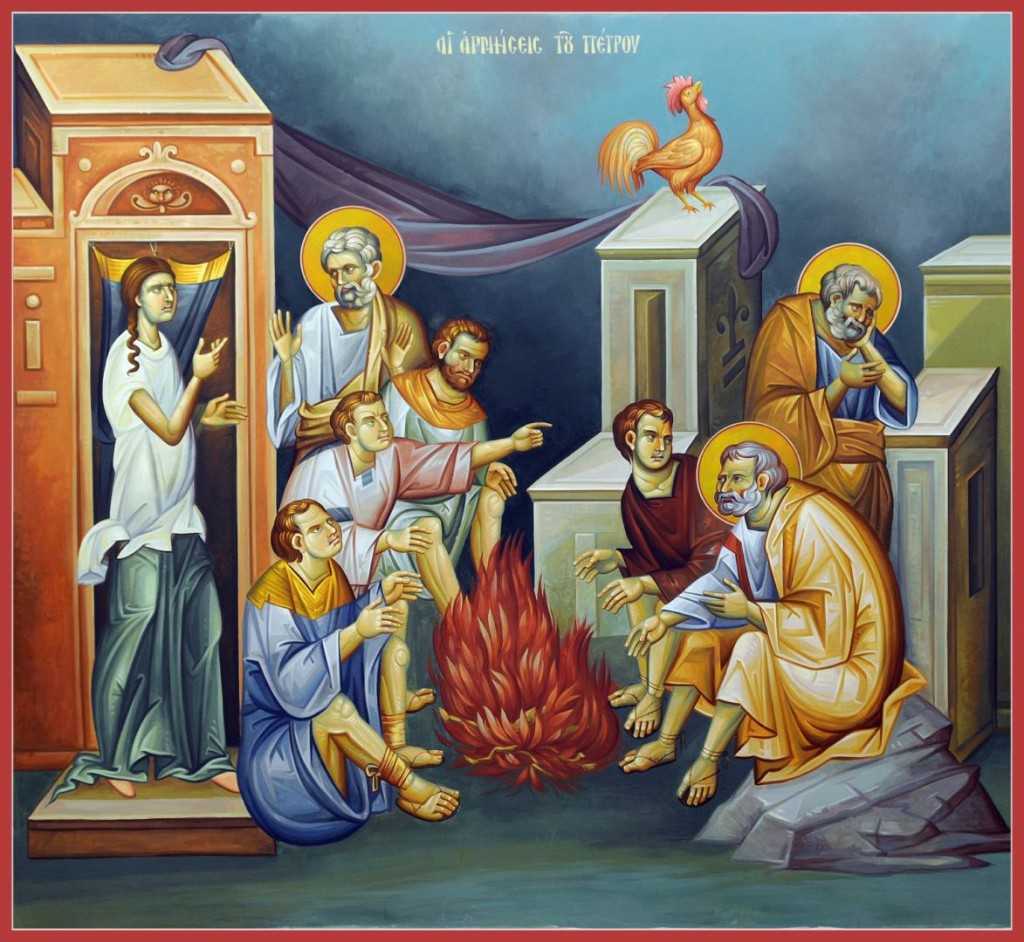
from Homily 37 “On the Passion of Our Lord Jesus Christ,” by St. Philaret of Chernigov
My listeners! Behold what can happen even to the best person! Peter, who had listened to the instructions of the Lord for so long; Peter, who had taught himself piety before the Lord’s face for so long; Peter, of unspoiled life, who was ready for every good work, whose piety was not merely outward – fell. Neither the education of a mind enlightened by the truths of heavenly wisdom nor sufficient experience in spiritual life could save Peter from a grievous fall.
You must agree that he who was distinguished by his special love for the One who looks, not at the face but at the heart, was a man of rare virtues. And that man – who had borne many unpleasant things for the Lord Jesus, who saw in Him the Son of God, who loved Him ardently, who had resolved to go even unto death for Him – having heard warnings about his weakness several hours before this, fell three times in one night and renounced his Lord. Do you understand, after this, what good people can do in and of themselves, with their own strengths and abilities?
Oh, how blind, how criminal is that earthly philosophy that rises up with questions and displeasure against the grace-filled love of the Heavenly Father for mankind! Peter did not come to repentance until the life-giving gaze of Heavenly Goodness fell upon him (Lk. 22:61).
On his own, man only falls. The best that infirm man can do consists in sensing that grace-filled gaze and repenting over his fall. And, on the contrary, the most dangerous state is a state of hope in oneself, self-satisfaction, and forgetful pride. Only a humble recognition of one’s inclination to falling and grief over one’s falls distinguish man from the fallen spirit who fell with a fall of inexorable pride. Terrible and hopeless was the fall of that spirit, who fell because he did not want to acknowledge his fall or admit his guilt.
And so, let us weep, let us bitterly weep over our sins. We have so many of them – far more than Simon had. Be afflicted, and mourn, and weep, the Apostle James exhorts us. Let your laughter be turned to mourning, and your joy to heaviness. Humble yourselves in the sight of the Lord, and He shall lift you up (James 4:9-10).
The angel at the sepulcher of the risen Savior commanded the women to tell His disciples and Peter about Him (Mk. 16:7) – that is, the Lord wanted grieving Peter to know that He loved him, that He had forgotten his past fall, that He greeted his repentance with love, and that He honored him as He had before: as Peter, and not as Simon. In exactly the same way will He accept our tears. Long ago the prophet said: The iniquity of the ungodly shall not harm him, in the day wherein he turns from his iniquity (Ezekiel 33:12).
Glory and praise to Thy boundless goodness, O Lord! Salvation for us is in humility alone. Amen.
